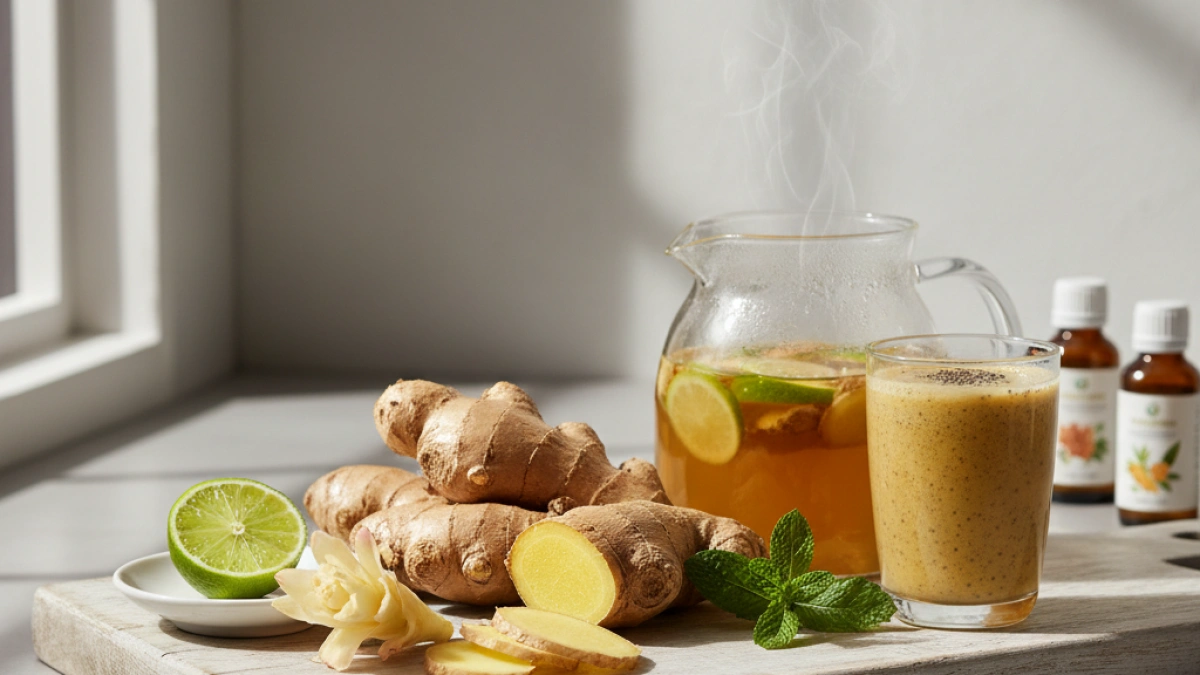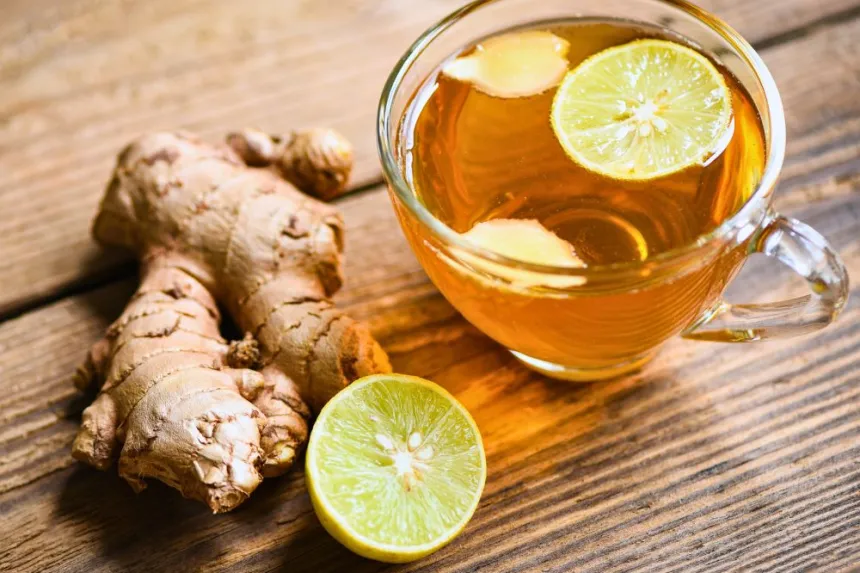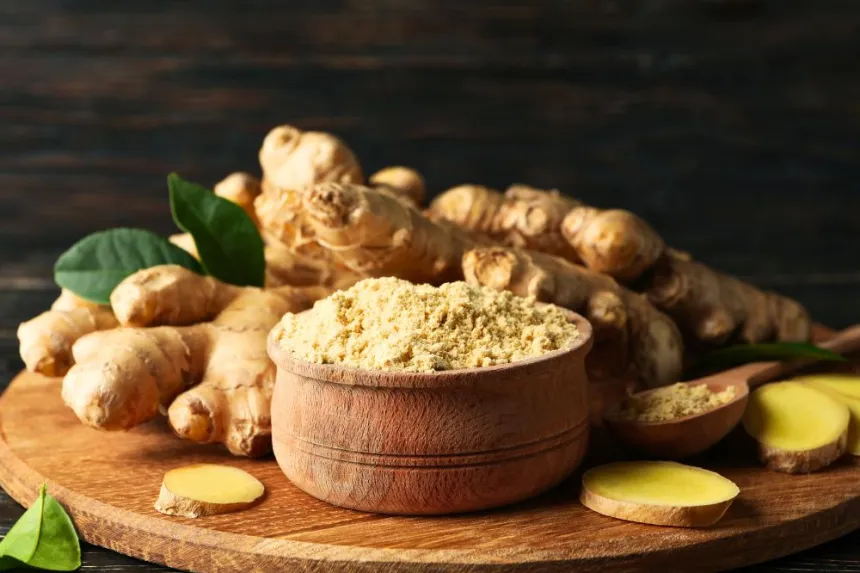Medicinal properties of ginger and its health benefits

Ginger is a plant native to Asia that has been used for centuries in traditional medicine due to its multiple health benefits. Recognized not only for its culinary use, ginger also stands out for its medicinal properties that can help improve overall health. In this article, we will explore the medicinal properties of ginger and how it can contribute to well-being.
What is Ginger?
Ginger, scientifically known as Zingiber officinale, is a herbaceous plant that belongs to the Zingiberaceae family. Its root is the most utilized part and contains bioactive compounds such as gingerol, which are responsible for many of its health benefits. This root can be consumed fresh, in powder form, in infusions, or even as an essential oil.
Medicinal Benefits of Ginger
Anti-inflammatory Properties
One of the main benefits of ginger lies in its potent anti-inflammatory properties. Gingerol, the primary bioactive compound in ginger, has been shown to inhibit the production of certain chemical substances that cause inflammation in the body. This can be particularly useful for people with inflammatory diseases, such as arthritis.
Read also
Relief from Nausea
Ginger is widely recognized for its ability to alleviate nausea symptoms. Its use is common in treating morning sickness during pregnancy and has also proven effective in reducing chemotherapy-induced nausea and motion sickness. Many experts recommend consuming ginger in infusions or in chewable forms for quick relief.
Improvement of Digestion
Consuming ginger can help improve digestion and reduce gastrointestinal issues. It facilitates the digestive process by stimulating the production of saliva and digestive juices. Additionally, it has traditionally been used to relieve discomfort such as indigestion and bloating.
Cardiovascular Benefits
Studies have shown that ginger can have positive effects on cardiovascular health. It has been observed that it may help reduce cholesterol levels and improve blood circulation. Furthermore, its anti-inflammatory properties may contribute to lowering the risk of heart disease.
Use of Ginger in Culture
Aside from its medicinal uses, ginger holds an important place in various cultural traditions. In Chinese medicine, for example, it is used as a remedy for colds and flu. In cooking, it is a versatile ingredient found in a variety of dishes, from curries to desserts.
Conclusion
Ginger is presented as a medicinal plant with a wide range of health benefits. From alleviating nausea to improving digestion and promoting cardiovascular health, its use in daily life can contribute to overall well-being. However, it is important to remember that while ginger is a healthy supplement, it does not replace conventional medical treatment.
I invite you to continue exploring more news of this kind on my blog, where you will find interesting information about health and well-being.











































